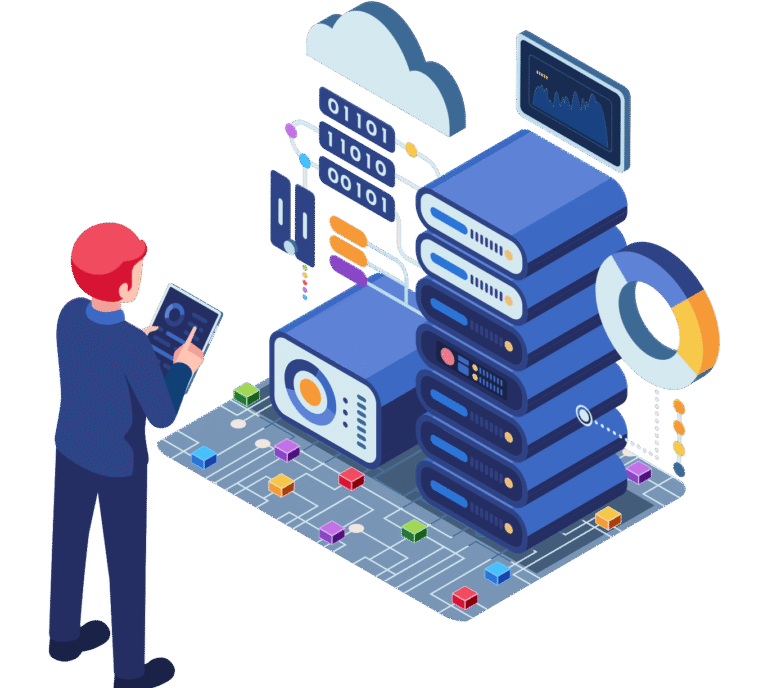
Machine Learning
Unlock the power of intelligent automation and data-driven decision-making with our Machine Learning (ML) services. At DevSecCops.ai, we help organizations build, deploy, and scale ML models efficiently and securely—turning data into real business outcomes.
Our Capabilities
Model Development & Training
Gain real-time visibility into servers, containers, and cloud resources to proactively detect issues before they impact users.
MLOps Implementation
Track application performance, uptime, and user experience with advanced observability tools.
Data Engineering & Preparation
Implement centralized logging and distributed tracing to simplify troubleshooting and root cause analysis.
Model Deployment & Serving
Set intelligent, automated alerts to respond quickly to anomalies and ensure uninterrupted service.
Model Monitoring & Drift Detection
Establish clear processes and automated workflows for faster resolution of critical incidents.
AI Security & Compliance
Automate repetitive tasks like scaling, failover, and recovery to reduce manual intervention and increase system reliability.
Why ML with DevSecCops.ai
Business Impact We Deliver
Reduce downtime, optimize performance, and scale confidently with SRE-driven automation and observability. Improve user satisfaction and business continuity through proactive reliability.

End-to-End ML Automation
From data ingestion to model deployment, we automate every step for faster, reliable outcomes.
Scalable AI Infrastructure
Our ML pipelines scale dynamically with your data and traffic demands—ensuring performance without compromise.
MLOps-Driven Reliability
We merge DevOps and ML for continuous integration, deployment, and monitoring—keeping your models always production-ready.
Secure & Compliant AI
Built with DevSecOps-first principles, we ensure your ML systems are as secure as they are smart.
Trusted By




















Call to Action
see how we can accelerate your ML journey.
Empower your business with intelligent automation —start your ML transformation today! Unify Machine
Unify Machine Learning, MLOps, and security to turn your data into real, scalable intelligence.
About Us
At DevSecCops.ai, we combine MLOps, DevSecOps, and AI automation to help enterprises operationalize intelligence securely and efficiently. Our goal is to make AI reliable, scalable, and easy to manage—so your teams can focus on innovation, not infrastructur


Simplify your cloud journey and focus on growth while we deliver secure, scalable, and cost-optimized cloud solutions tailored to your business needs.
FAQ
Infrastructure monitoring involves collecting and analyzing data from IT systems like servers, networks, and cloud environments to ensure performance, availability, and security. It’s critical because it helps detect issues proactively, minimizes downtime, optimizes resource usage, and ensures a seamless user experience, directly impacting business reliability and customer satisfaction.
APM focuses on tracking the performance, availability, and user experience of applications, including response times and error rates, across the entire software stack. Infrastructure monitoring, on the other hand, oversees the underlying hardware, networks, and cloud resources. APM provides deeper insights into application-specific issues, while infrastructure monitoring ensures the foundational systems are healthy.
Logging captures detailed records of system events, errors, and activities, helping teams diagnose issues. Tracing tracks the journey of a request through distributed systems, identifying bottlenecks or failures. Together, they complement metrics to provide a comprehensive view of system health, enabling faster root cause analysis and improved observability.
Effective alerting uses predefined thresholds and real-time data to notify teams of potential issues, such as high CPU usage or application errors, before they escalate. By prioritizing critical alerts and reducing noise, teams can respond quickly, minimizing downtime and ensuring service reliability. Tools like customizable dashboards and automated notifications enhance this process.
SRE is a discipline that applies software engineering principles to IT operations to improve system reliability and performance. It integrates with monitoring by defining key metrics (like the four golden signals: latency, errors, saturation, and traffic), automating responses, and using observability tools to proactively manage systems, ensuring high availability and efficient incident response.
